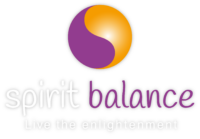 The Dark Therapy Centre run by Roman Bartak in Kozlovice (Czech Republic), specialises in providing what they call Dark Therapy (Terapie Tmou) as a service, as well as being the sole provider in the country which focuses on carrying out research into the effects of prolonged periods in the dark on the human body.
The Dark Therapy Centre run by Roman Bartak in Kozlovice (Czech Republic), specialises in providing what they call Dark Therapy (Terapie Tmou) as a service, as well as being the sole provider in the country which focuses on carrying out research into the effects of prolonged periods in the dark on the human body.
Initially this research was carried out in cooperation with the Department of Psychology of the University of Olomouc, then later with the Department of Psychology and the Institute of Physiology and Patho-physiology, of the University of Ostrava (both in the Czech Republic). To begin with, research was carried out with students of psychology and related disciplines over a period of 2 and then 3 days. However, since 2015 it has also been carried out with actual Dark Therapy clients, on a voluntary basis, and in 2016 the researchers extended their study to test the effects of up to 4 days in the dark.
The ‘Dark Therapy’ research is led by Marek Malůš PhD, assistant professor of the Department of Psychology Faculty of Philosophy in Ostrava, who completed several darkness retreats himself to inform his study. This is a unique global study, which builds on research that was started in the 1970s in the US, and extends to the areas of both psycho-physiology and physiology.
The research objectives are focused on several areas of human psychology and physiology, in order to measure the changes which take place as a result of the participant’s stay in the dark, based on the results of tests taken before and after the stay.
The psychological studies monitor cognitive function (a total of 12 tests). These include, in addition to memory and concentration, attention, language function, speed of thinking and the ability to understand information.
The executive functions include the ability to assess and problem solving, planning and organization. Further parameters are monitored based on the participant’s personality, as well as motivational and experiential characteristics, including the assessment of the advantages/disadvantages stemming from the participants.
In contrast, the physiological studies are investigating the psycho-physiological effects of processes, basic blood counts and the effect on the human eye (a total of eight tests). Attention is focused on the measurement of ECG, heart rate and its variability, blood pressure, and the detected change in weight. Whilst monitoring the human eye, they measure visual acuity, color vision and the quality of peripheral vision.
The outcomes of this extensive study are currently not yet known because evaluation and analysis of the results are still pending. Preliminary results show however (as you might expect), that the four-day stays are already showing more fundamental changes than shorter stays, including positive shifts occurring in cognitive functions, heartbeat and also improving eyesight.
You can find out more at http://www.terapietmou.net/
